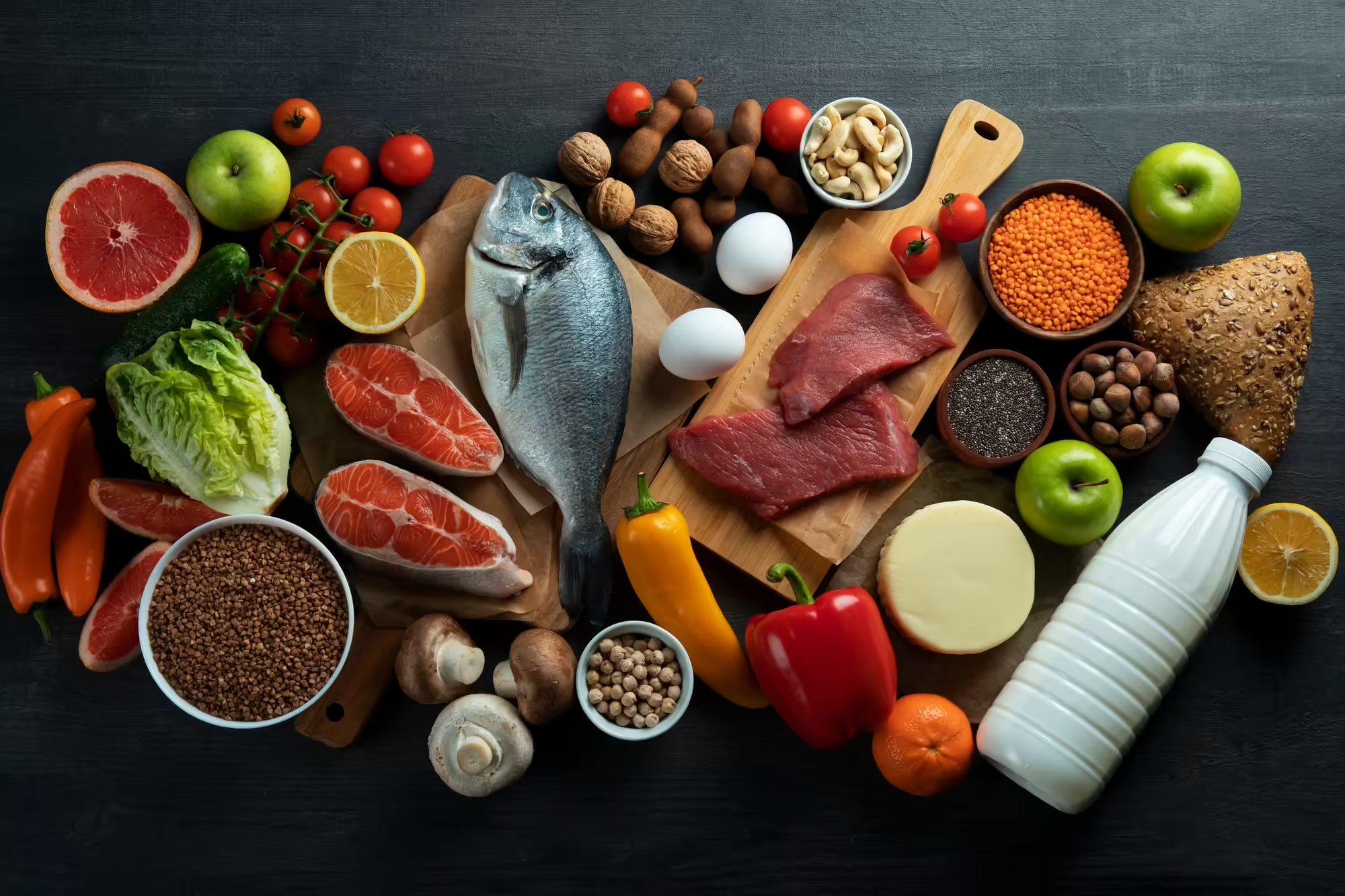Get your nutrition nerd on with this no-nonsense guide to common food facts. Discover the nutritional powerhouses hiding in your fridge and pantry, from fish and eggs to bananas and lentils. Make informed choices about what you eat and fuel your body with the best.
Alright, health nuts, let’s geek out on nutrition! We’re about to break down the nitty-gritty of common foods, so you can make informed choices about what you’re putting in your body. No fancy jargon or calorie counting required – just straight-up facts about the nutritional powerhouses you already know and love.
What is the nutritional value of fish?
Fish is a lean protein superstar, packed with omega-3 fatty acids, vitamins D and B12, and minerals like iodine and selenium. Think of it as brain food, heart medicine, and an anti-inflammatory agent all rolled into one. Go for fatty fish like salmon, tuna, and mackerel for the biggest omega-3 punch.
What is the nutritional value of egg?
Eggs are a nutritional powerhouse, packed with protein, vitamins A, D, E, and K, and choline, which is essential for brain health. They’re also a budget-friendly and versatile protein source – scramble ’em, poach ’em, or fry ’em up for a quick and easy meal.
What is the nutritional value of rice?
Rice is a staple food for a reason – it’s a good source of carbohydrates, which provide energy for your body. Choose brown rice over white for extra fiber, magnesium, and manganese.
What is the nutritional value of banana?
Bananas are nature’s energy bar, packed with potassium, vitamin C, and fiber. They’re also a natural source of sugar, so enjoy them in moderation.
What is the nutritional value of milk?
Milk is a calcium and vitamin D powerhouse, crucial for bone health. Choose low-fat or skim milk to avoid excess saturated fat.
What is the nutritional value of butter?
Butter is high in saturated fat, so enjoy it sparingly. It does offer some vitamin A and K2, but use it as a flavor enhancer rather than a main ingredient.
What is the nutritional value of chicken?
Chicken is a lean protein source, providing essential amino acids for muscle building and repair. Choose skinless breasts or thighs for the healthiest option.
What is the nutritional value of lentils?
Lentils are a vegetarian protein powerhouse, packed with fiber, iron, and folate. They’re also budget-friendly and versatile – toss them in salads, soups, or stews.
What is the nutritional value of brussels sprouts?
Brussels sprouts might be a love-it-or-hate-it veggie, but they’re packed with vitamins C and K, fiber, and antioxidants. Roast them, grill them, or shred them into salads for a nutrient boost.
What is the nutritional value of wheat?
Wheat is a staple grain, providing carbohydrates, fiber, and some protein. Choose whole wheat over refined wheat for maximum nutritional benefits.
What is the nutritional value of tomato?
Tomatoes are bursting with vitamin C, potassium, and lycopene, a powerful antioxidant. They’re a versatile addition to salads, sauces, and sandwiches.
What is the nutritional value of orange?
Oranges are a vitamin C superstar, essential for immune function and skin health. They’re also a good source of fiber and potassium.
What is the nutritional value of corn?
Corn is a starchy vegetable, providing carbohydrates and some fiber. It’s also a good source of antioxidants like lutein and zeaxanthin, which are important for eye health.
What is the nutritional value of spaghetti?
Spaghetti is a refined grain, mostly providing carbohydrates with little fiber. Choose whole wheat spaghetti for more nutrients and fiber.
What is the nutritional value of peanut butter?
Peanut butter is a good source of protein, healthy fats, and fiber. Choose natural peanut butter without added sugar or hydrogenated oils for the healthiest option.
What is the nutritional value of yeast?
Yeast is a good source of B vitamins, protein, and trace minerals. It’s also a prebiotic, which feeds the good bacteria in your gut.
What is the nutritional value of coconut?
Coconut is high in saturated fat, but it’s a unique type called medium-chain triglycerides (MCTs), which may have some health benefits. Enjoy it in moderation.
What is the nutritional value of celery?
Celery is mostly water, but it also provides some vitamin K, folate, and potassium. It’s a low-calorie snack that can help you stay hydrated.




